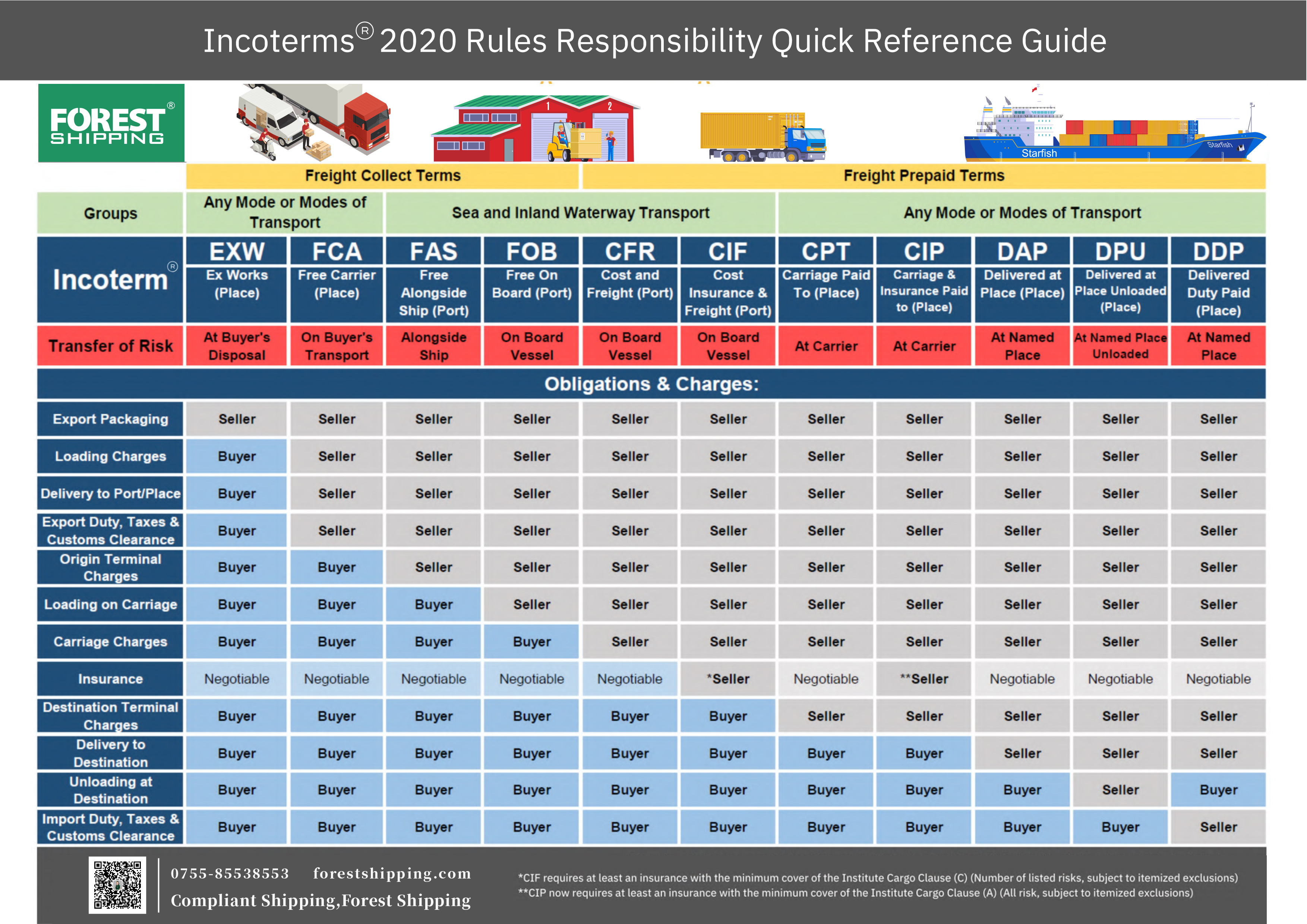Navigating the Complex World of Incoterms
As experts and participants in the multifaceted realm of global commerce, we understand the significance of standardized rules that govern trade transactions. Incoterms®, short for International Commercial Terms, are the cornerstone of international trade agreements, acting as a universal language for buyers and sellers around the world. These terms facilitate the smooth operation of trading across borders by removing ambiguities and clarifying the roles, costs, and risks involved in the shipping and handling of goods.
Understanding Incoterms: The Backbone of Global Trade
The Evolution of Incoterms from 1936 to 2024
Incoterms® has undergone numerous revisions to keep pace with the ever-evolving landscape of global trade. Since their inception in 1936 by the International Chamber of Commerce (ICC), these terms have been updated to reflect advancements in transportation, international law, and trade practices. The most recent edition, Incoterms® 2020, is currently in use and continues to play a crucial role in 2024, demonstrating its enduring relevance.
Defining Incoterms and Their Global Acceptance
Incoterms® are the agreed-upon terms between a buyer and a seller in international trade contracts. These terms are widely recognized by legal authorities and governments across the globe. Incoterms® specify the point at which the costs and risks of shipping are transferred from the seller to the buyer. With eleven distinct terms tailored to different types of transactions, understanding these terms is indispensable for anyone involved in international commerce.
Role and Importance in International Transactions
The importance of Incoterms® in global trade can scarcely be overstated. By clearly delineating the responsibilities of the buyer and seller, the terms reduce the risk of costly misunderstandings and legal disputes. They establish critical variables such as who handles customs documentation, arranges for transport or insurance, and at what point the risk shifts from seller to buyer.
The Incoterms 2020 Framework: A Closer Look
Overview of the 11 Updated Incoterms
The ICC's Incoterms® 2020 edition introduced one new term and made several updates to older terms. These 11 terms are categorized based on whether the shipping mode is the sea and inland waterway or any mode of transport. Each term encompasses specific obligations that address costs, insurance, and the point of transfer of risk.
Explain EXW | Ex-Works or Ex-Warehouse
EXW designates that the seller makes the goods available for collection at their premises and the buyer is responsible for all subsequent transportation costs and risks. This term places minimum obligations on the seller.
Explain FCA | Free to Carrier
Under FCA, the seller delivers the goods, cleared for export, to the buyer’s nominated carrier at a specified location. It strikes a balance between seller and buyer responsibilities.
Explain FAS | Free Alongside Ship
FAS requires the seller to deliver the goods alongside the vessel on which they are to be shipped. The buyer then takes over the cost and risk of loss or damage.
Explain FOB | Free On Board
With FOB, the seller must load the goods on the vessel nominated by the buyer. The risk passes to the buyer when the goods are on board the vessel.
Explain CFR | Cost and Freight
CFR stipulates that the seller covers the cost of transport to the port of destination.
However, the risk transfers when the goods are loaded onto the ship.
Explain CIF | Cost, Insurance and Freight
The CIF term is similar to CFR, but with the additional requirement that the seller purchases insurance for the goods during the voyage.
Explain CPT | Carriage Paid To
Under CPT, the seller pays the freight for the carriage of goods to the named destination. The risk transfers to the buyer when the goods are handed over to the first carrier.
Explain CIP | Carriage And Insurance Paid To
CIP requires the seller to pay for the carriage and insurance of goods to a named destination. The risk passes to the buyer when the goods are transferred to the first carrier.
Explain DAP | Delivered At Place
DAP obligates the seller to deliver the goods to the buyer at a named place, ready for unloading. The seller bears all risks involved in bringing the goods to the specified location.
Explain DPU | Delivered At Place Unloaded (replaces Incoterm® 2010 DAT)
DPU is unique among Incoterms® in that it requires the seller to unload the goods at the destination. The risk does not pass until the goods have been unloaded.
Explain DDP | Delivered Duty Paid
DDP places the maximum obligation on the seller, who must deliver the goods to the named place, ready for unloading, and pay all costs including duties, clearing the goods for import.

Implementing Incoterms in Trade Agreements
Structuring Sales Contracts with Incoterms
In our contracts, mentioning the specific Incoterms® alongside the named place and the version of the Incoterms® being used (such as Incoterms® 2020) is essential to avoid confusion. This structure helps in clearly defining the scope of the seller’s and the buyer’s obligations.
How to Choose Incoterms for Your Business
The selection of the appropriate Incoterm® for our business deals is based on the evaluation of various factors, such as the type of goods being shipped, the modes of transport available, and our willingness to assume certain costs and risks.
The Impact of Incoterms on Documentation and Compliance
Incoterms® affect the documents required for shipping and customs compliance. Our understanding of these requirements ensures that we consistently align our trade documentation with the chosen Incoterms®.
Best Practices for Utilizing Incoterms Effectively
Evaluating Shipping Needs and Risks
We assess our shipping goods to determine the most appropriate Incoterm®, taking into account the goods' nature, value, fragility, and perishability.
Ensuring Freight Mode and Incoterm Alignment
Incoterms® are selected to match the mode of transport we intend to use, which also impacts the responsibility and cost distribution between us and the trading partner.
Consulting Experts for Optimal Incoterm Selection
Given the complexity of shipping responsibilities and risks, we often seek advice from supply chain experts to determine the most appropriate Incoterm® that suits our specific needs and objectives.
By adhering to these terms and practices, we can navigate the multifarious challenges of international trade with confidence, reducing risks, avoiding unexpected costs, and streamlining our business transactions across borders.


